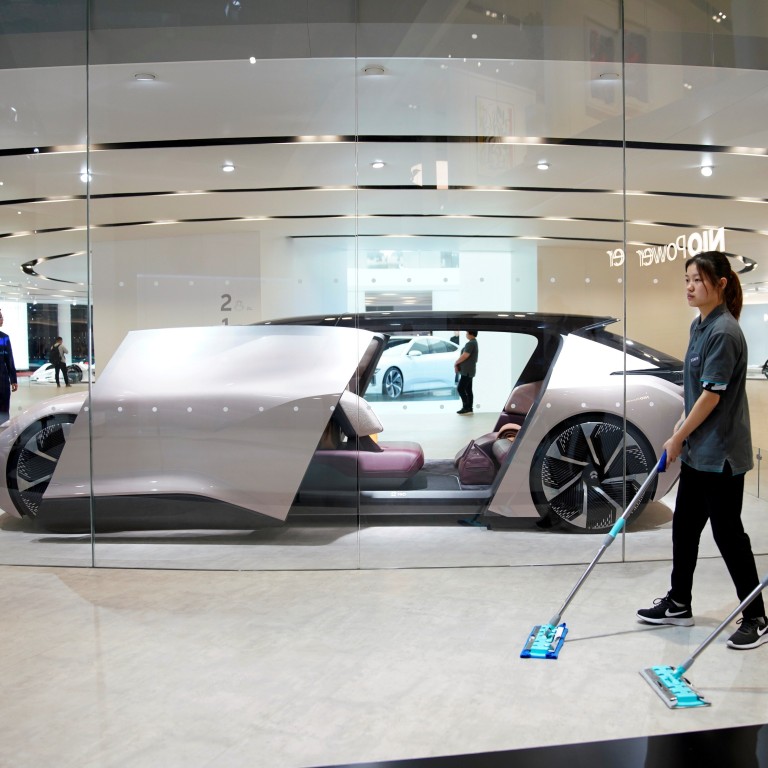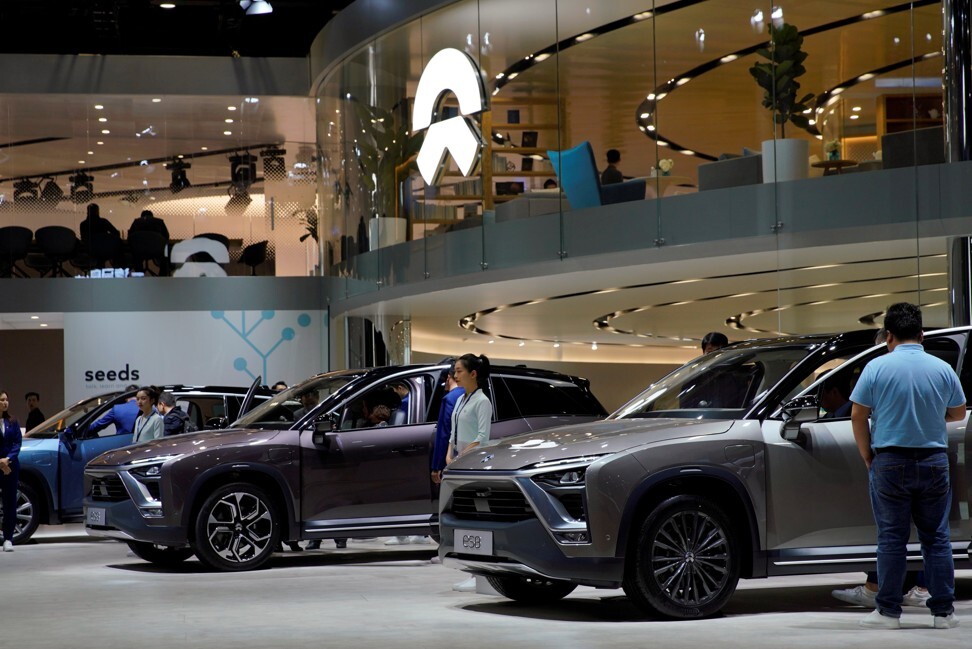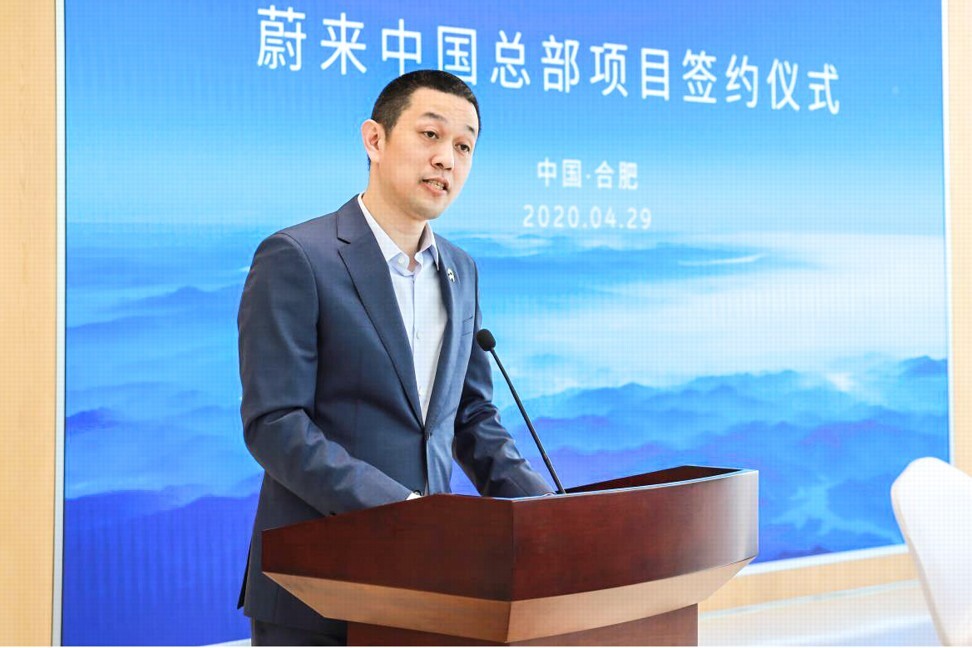
Cash-strapped electric carmaker NIO obtains US$1 billion lifeline from strategic investors
- The deal calls for NIO to transfer its core businesses and assets into a new company
- The new firm, called NIO China, will establish its headquarters in Hefei, capital of eastern Anhui province
Cash-strapped electric vehicle maker NIO has landed definitive agreements for a total cash infusion of 7 billion yuan (US1 billion) from strategic investors, easing concerns about its continued operation.
The deal made with Hefei City Construction and Investment Holding, CMG-SDIC Capital and Anhui Provincial Emerging Industry Investment calls for NIO to “inject its core businesses and assets in China, including vehicle research and development, supply chain, sales and services and NIO Power,” into a new company called NIO China, the carmaker said in a statement on Wednesday.
Shanghai-based NIO will also invest 4.26 billion yuan in cash into NIO China. Upon completion of the investments this second quarter, NIO will hold a 75.9 per cent controlling equity interest in the new company and the three strategic investors will collectively hold the remaining 24.1 per cent.
Raising funds has become more critical for NIO amid increased competition from electric car giant Tesla, which has a manufacturing base in Shanghai, and the difficulties posed by the coronavirus outbreak, which led to communities being locked down and factories halting production.
But with fresh funding, NIO could help energise China’s electric vehicle industry, which has been hammered by a domestic economic slowdown, reduced government subsidies and the pandemic.
Car sales in China fell for the 21st consecutive month in March. First-quarter sales totalled 3.7 million vehicles, down 42 per cent from a year ago, according to data released by the China Association of Automobile Manufacturers.

Under the funding deal, NIO will set up its new headquarters in Hefei, capital of eastern Anhui province. The company’s new base is at the Hefei Economic and Technological Development Area, where its ES8 electric sport utility vehicle has been manufactured by state-owned partner JAC Motors – officially known as Anhui Jianghuai Automobile Co – since 2016.
Despite NIO’s successful fundraising effort, other electric vehicle makers in China are still searching for momentum to overcome the challenges brought by the pandemic, which has upended sales and manufacturing in the world’s largest car market.


